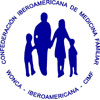A new curriculum attracting health professionals in rural areas in Germany
Resumo
Objetivos: The development process of a new clinical elective with focus on career-choice and motivation for rural medicine is described. It integrates evidence from the literature and students preferences how to put theory into teaching practice .
Metodologia ou Descrição da Experiência: According to the literature about career choice-strategies and motivation the requirements of a training that stabilizes and increases student’s interest in rural medicine were set: 1. Creation of a positive psychosocial learning atmosphere, 2. introduction of new models of rural living, 3. enhancing self-reflection about professional and private goals, 4. contact with positive role-models of rural physicians, and 5. teaching of specific and unique skills of general medicine. These topics were discussed with a focus-group of waiting-list-students that applied for the elective. Aim of the interview was to collect students views how to converse the topics into a training format.
Resultados: Results of a literature-research and the focus-group discussion are presented. The literature-based framework of five major requirements is concretized according to focus-group results. Implementation strategies include weekends off campus rather than weekly training sessions, a mixture of professional training, self-awareness-training and team-building activities, locating the elective in innovative regions of rural living like a regional ecovillage community, discussion with regional physicians about private and professional experiences and teaching of communication-skills, algorithms for probability-based reasoning and diagnostic testing in clinical settings with low disease-prevalence.
Conclusão ou Hipóteses: New formats of medical education are required to support medical students with career-decisions and planning of life. Students appreciate integrated education formats that combine concrete experiences of living and working as a general practitioner with teaching of specific professional and self-management skills. Medical schools can co-develop new course-offerings together with students.
Palavras-chave
Texto completo:
PDF (English)Apontamentos
- Não há apontamentos.
Este periódico é de responsabilidade das associações:
Apoio institucional:







